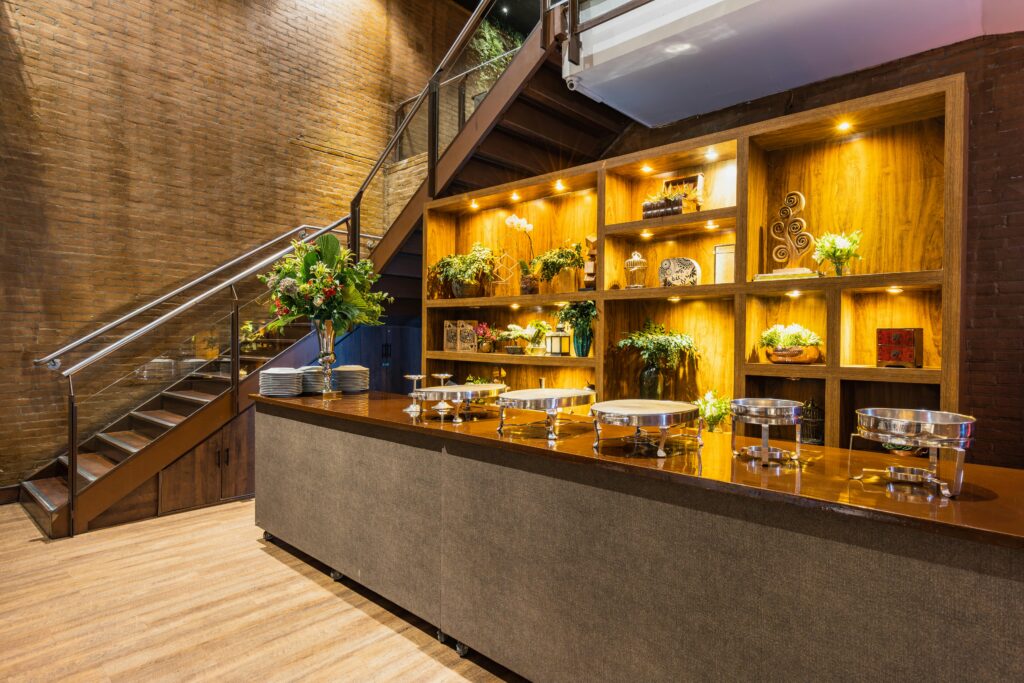Sector
Hotels, Catering And Leisure

The Hotel, Catering and Leisure sectors play a vital role in the global economy, tourism and culture exchange. These industries are interconnected, forming a dynamic ecosystem that caters to the diverse needs of travelers, event- goers and leisure seekers worldwide. As consumer preferences evolve and new market trends emerge, businesses within these sectors must adapt to stay competitive and meet the growing demand for high quality services and experiences.

Hotel Sector
The Hotel industry is a cornerstone of the global hospitality sector, offering accommodation services ranging from budget friendly options to luxury resorts. The success of a hotel often hinges on its ability to meet the diverse needs of travelers, whether they are business professionals, tourists or families. Key elements that define this sector include:
- Diverse Offerings- The hotel sector includes various types of accommodations, such as boutique hotels, extended stay hotels, resorts and budget inns. Each type caters to different customer preferences and budgets, ensuring that there is something for everyone. Additionally, boutique hotels are becoming increasingly popular offering unique, themed experience that stand out from the standard offerings of larger hotel chains. This variety ensures that every type of traveler can find tastes and budget.

- Customer Experience- With competition fierce, hotels are increasingly focusing on providing exceptional customer experiences. This includes personalized services, high-quality amenities, and seamless technology integration, such as mobile check-ins and smart room features.
- Sustainability Practices- As environmental concerns grow; many hotels are adopting sustainable practices. These range from energy- efficient building designs and renewable energy sources to waste reduction programs and eco- friendly amenities.
- Global Reach and Local Flavor- While international hotel chains continue to expand their global presence, there is also a significant emphasis on incorporating local culture and flavors into the guest experience. This dual approach helps hotels resonate with both international and local travelers.

Catering Sector
The Catering industry is a vital segment of the hospitality sector, providing food and beverage services for events, businesses, and special occasions. Whether it’s a corporate meeting, wedding, or a private dinner party, the catering sector is all about delivering high-quality food experiences, key aspects of this sector includes:
- Customization- Catering services are highly customizable, allowing clients to tailor menus, themes, and presentation styles to suit their events specific needs. This personalization is crucial in meeting the diverse tastes and dietary requirements of guests.
- Efficiency and Logistics- Catering company must excel in logistics and time management, ensuring that food is prepared, delivered and served at the right temperature and at the correct time. This requires meticulous planning and coordination especially for large- scale events.

- Innovation in Menu Design- With growing consumer interest in health and wellness, catering companies are innovating their menus to include healthier, organic and plant based options. This shift not only caters to changing consumer preferences but also positions companies as forward thinking and adaptable.
- Sustainability- Similar to the hotel sector, sustainability is a growing concern in catering. Companies are increasingly sourcing local ingredients, minimizing food waste, and opting for biodegradable or reusable service ware to reduce their environmental impact.

Leisure Sector
The Leisure sector encompasses a broad range of activities designed for relaxation, enjoyment and recreation. This sector includes everything from theme parks and sports complexes to cultural experiences like museums and theaters. As consumer demand for unique and engaging experiences grows, the leisure sector continues to evolve. Key characteristics of this sector includes:
- Experiential leisure- The leisure sector thrives on creating memorable experiences for consumers. This could be through immersive environments in theme parks, interactive exhibits in museums, or the excitement of live sports events. The focus is on engagement and creating lasting memories.

- Technology Integration- The leisure sector is increasingly leveraging technology to enhance customer experiences. Virtual reality (VR) attractions, online booking systems, and mobile apps for navigating large venues are just a few examples of how technology is reshaping the leisure landscape.
- Health and Wellness- There is a growing trend toward leisure activities that promote health and wellness. This includes wellness retreats, fitness holidays, and outdoor adventure activities all of which cater to consumers looking to improve their well-being while having fun.
- Economic Impact- The leisure sector significantly impacts the economy by creating jobs, attracting tourists, and boosting local businesses. It also plays a vital role in promoting cultural exchange and community engagement.

